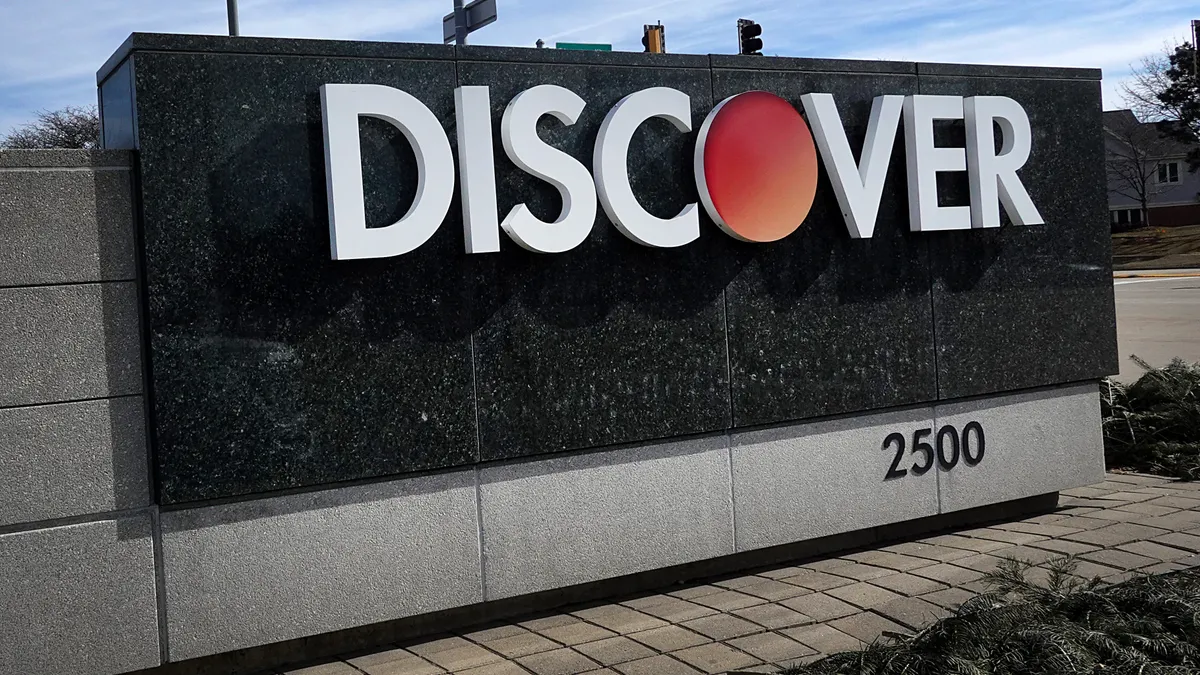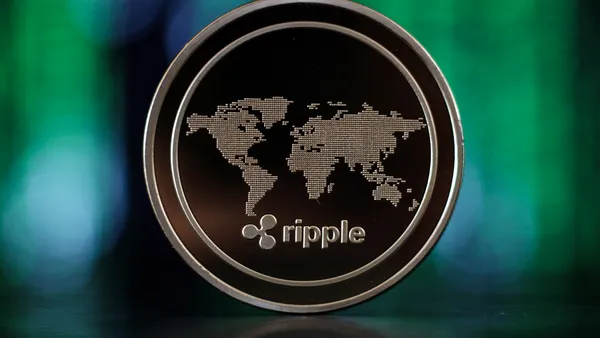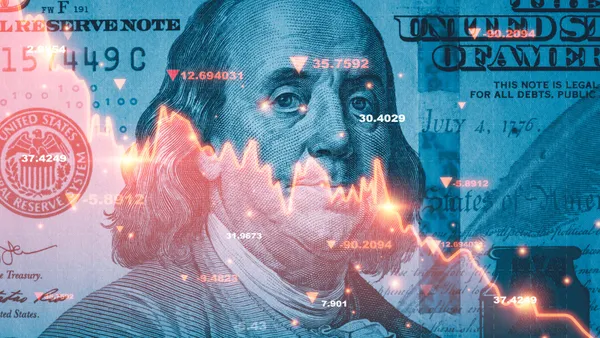Dive Brief:
- Discover is set to pay $1.2 billion to settle class-action lawsuit claims related to a card misclassification issue disclosed last year, Discover said in a regulatory filing last week. Claims were filed on behalf of merchants and merchant acquirers affected by the misclassification.
- Earlier this year, Discover increased the amount it was setting aside to resolve the issue, and the card company “expects all payments under the settlement agreement to be covered” by the $1.2 billion reserve, the July 3 filing with the Securities and Exchange Commission said.
- The settlement, entered into July 1, awaits court approval, Discover said in the filing.
Dive Insight:
Beginning in 2007, the Riverwoods, Illinois-based company misclassified certain credit card accounts into its highest merchant and merchant acquirer price tier, resulting in overcharges.
The issue “underscored deficiencies” in the company’s corporate governance and risk management, former CEO Roger Hochschild said last July, just weeks before he resigned abruptly in August. The company faces an SEC probe over the issue.
During the first quarter, Discover “continued settlement discussions with large direct merchants both directly and indirectly as plaintiffs in putative class actions filed on behalf of all merchants, and the Company continued to discuss these efforts with its regulators,” the card company said in its first-quarter regulatory filing.
In the first quarter, Discover added $799 million to the $375 million already set aside to resolve the card misclassification issue. The decision to bolster the set-aside was based on the company’s experience to date with remediation efforts, regulatory dialogue and Discover’s pending merger with Capital One, Discover CFO John Greene said in April.
An additional $9 million in settlement disbursements were made in the first quarter, following $12 million made as of the end of last year, the company’s first-quarter filing said.
Discover executives expected the reserve increase earlier this year, bringing the total to about $1.2 billion, would “advance the resolution of these issues,” Discover’s interim CEO, Michael Shepherd, said in April.
On top of that sum, the company has warned that it could face further financial toll related to the issue. In addition to the SEC investigation, Discover expects discussions with its regulators could result in enforcement actions carrying monetary penalties, and the company faces a putative shareholder class action.
“The Company believes that additional losses are probable as a result of these actions and such losses could be material,” Discover said in the filing.
Capital One CEO Richard Fairbank has said the company is bracing for a “significant” undertaking in resolving compliance issues at Discover, pending the merger’s approval. In February, Capital One announced it intended to purchase Discover for $35.3 billion in an all-stock deal; executives have said they expect the deal to close late this year or early next.
The proposed merger, which would create the largest credit card issuer in the U.S., requires approval from the Federal Reserve and the Office of the Comptroller of the Currency. The two agencies will hold a public meeting July 19 “to collect information from a wide range of stakeholders as the agencies evaluate the applications,” they said in May.
Public comment on the merger applications can be made to the Fed and OCC through July 24.















